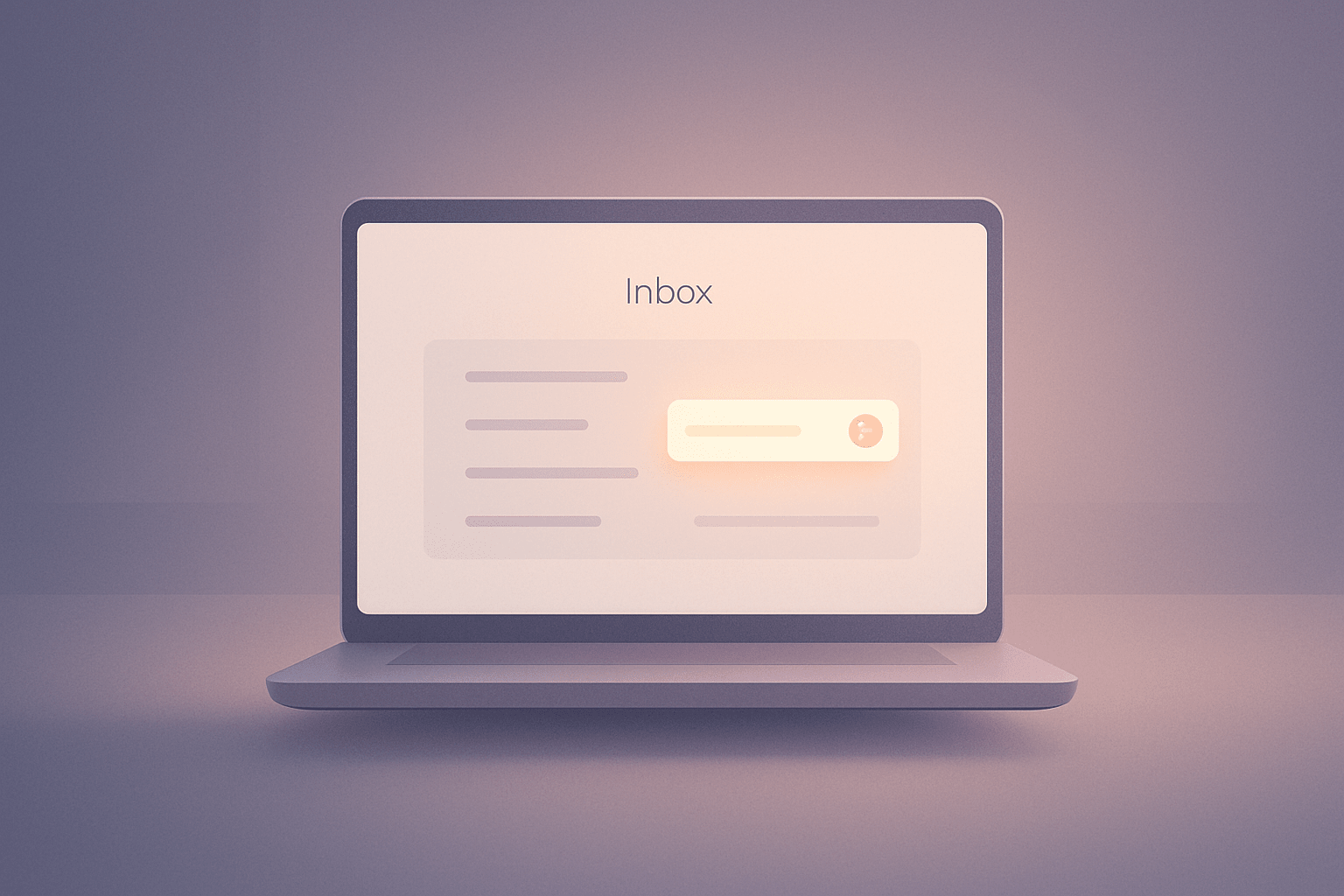
Master the Rejection: How to Write B2B Follow-Up Emails That Get Replies
When a prospect ignores your pitch or says "not right now," most marketers do one of two things:
Give up and move on.
Chase with desperate follow-ups that burn the bridge.
But rejection in B2B isn’t the end, it’s a window. And a smart follow-up can turn a cold lead into warm pipeline faster than most ads ever will.
This guide shows you exactly how to follow up after rejection or silence with class, clarity, and long-term leverage.
Why Most Follow-Ups Fail
Rejection in B2B is rarely personal—it’s timing, bandwidth, or unclear value. But most follow-up emails don’t fix any of those.
They either:
- Guilt the reader (“just circling back again…”)
- Restate the same pitch with no new angle
- Overwhelm with links, decks, and desperation
The result? Ignored again.
What works is precision, timing, and calm confidence. Here’s how to do it.
The 4-Part Follow-Up That Opens Doors (Even After “No”)
1. Lead With Value, Not Ego
Start by removing yourself from the equation. No “just checking in” or “wanted to see if you had time.” Instead, share something that makes their day easier.
Example:
“Saw you’re hiring 3 SDRs—this 3-minute sales call teardown might help with onboarding. No pitch, just value.”
You’re not begging for attention. You’re becoming useful.
2. Acknowledge the Timing
Show that you respect their decision or silence—and that you’re not here to pressure.
Example:
“Totally get that this might not be a priority right now. Just wanted to leave one last idea with you.”
That line disarms. It gives them space while leaving the door open.
3. Offer a Low-Friction Next Step
Don’t push for a 30-minute call. Offer something easy to say yes to—like a free audit, a Loom breakdown, or a link to a resource.
Example:
“If it helps, happy to send over a 60-second Loom showing how [your tool] could work for [their company] specifically.”
Make the ask small. Make the benefit clear.
4. End With Optionality and Gratitude
This isn’t your last email ever—but it might be theirs. So keep it gracious and professional.
Example:
“Either way, appreciate you taking a look. If timing changes or priorities shift, I’m just one reply away.”
This signals maturity and long-term thinking. It earns respect—even if they don’t reply today.
Real-World Example: The Follow-Up That Re-Engages
Subject: One last thing before I close the loop
Hi [First Name],
Totally understand if now’s not the right time for this—appreciate you taking a look.
Before I close the loop, I wanted to pass along [resource/insight relevant to their role]. Might help with [pain point you identified].
If it’s helpful, I’m happy to shoot over a short Loom walking through how we’d approach this for [Company Name]. No hard pitch—just ideas.
Either way, thanks again. If it makes sense down the line, I’m around.
Best,
[Your Name]
Pro Tips for B2B Follow-Ups
Wait 3–5 days after the initial rejection or silence.
Use a new subject line—don’t “RE:” yourself to death.
Switch channels if needed—LinkedIn DM, voice note, or even a handwritten note can stand out.
Track opens/clicks if you’re using outreach software. Double down on signals.
Final Thought
B2B isn’t about one email. It’s about building trust over time.
Rejection is just a speed bump - if you treat it with empathy, patience, and value-first thinking.
Follow up like a pro, and the people who said “no” today might be your biggest clients next quarter.
Join 1,000+ CompaniesImproving Email Deliverability
Start with 200 free validations. Upgrade only when you're ready.
No credit card required • Cancel anytime